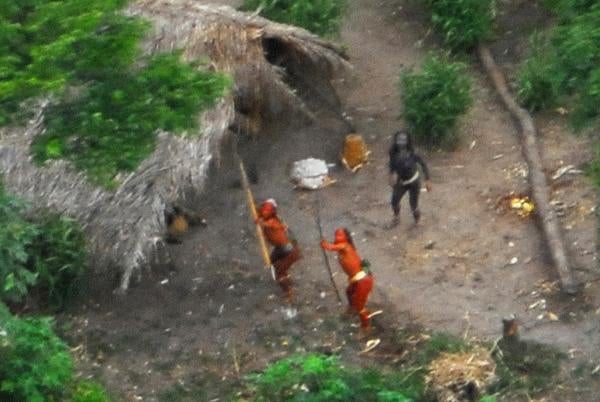
Human rights charity Survival has claimed a victory in its bitter battle with The Observer over a story about a “lost” indigenous tribe.
The row erupted in June, when Observer foreign editor Peter Beaumont questioned photos of an “uncontacted” tribe found in the rainforest on the Brazilian-Peruvian border which were put out by Survival. The pictures showed tribesmen firing arrows up at an aircraft.
Beaumont said in his piece that the story of the tribesmen had been misleadingly spun – and that far from being “unknown” they had been first noted in 1910.
Survival took umbrage because they claimed the Observer piece gave the impression they were responsible for a hoax.
After the issue was taken up by the Press Complaints Commission The Observer this week published a story admitting that its piece had been “misleading”.
Survival International director Stephen Corry said: “The Observer’s original article was doubly damaging: firstly, because it suggested that we had misled people, and secondly because it was used by those opposed to tribal peoples’ rights to suggest that the photos of uncontacted Amazon Indians were faked.”
The row got personal in July, when Survival put a recording of a mobile phone message in its website in which Beaumont said he would take legal action if Survival continued to claim he had accused the charity of being behind a hoax, which he did not do.
In its clarification this week, the Observer conceded that it had got the story wrong.
It said: ‘The Observer chose to try to explain how misleading some of the coverage [of the undiscovered tribe] had been, but the editing process managed instead to heap further doubt on the veracity of a perfectly valid story, with serious consequences for the charity.
“The damage began with the misleading headline ‘Secret of the “lost” tribe that wasn’t’ and continued in the standfirst, or introduction: ‘Tribal guardian admits the Amazon Indians’ existence was already known.”
The Observer said: “The piece attempted to suggest that other media had ‘told and sold’ the story incorrectly, but a reader could reasonably infer that it was Survival International that had ‘told and sold’ a misleading story. All this, carried under a headline which said The Observer was revealing a secret, sparked a further round of worldwide publicity, but this time proclaiming the story had been ‘a hoax’, ‘a fraud’ a ‘PR joke’ or that the photographs were ‘fakes’.
“As soon as it became apparent that other media thought the tribe story was false, The Observer’s reporter offered to collaborate on the wording of a blog post which might clarify the situation. Survival International rejected this, feeling that it would not be given ‘due prominence’ as readers of the paper would not see it.
“While The Observer cannot be responsible for content of other media it does have a duty under the Editors’ Code not to publish ‘inaccurate, misleading or distorted information’. It failed in that duty here.”
Email pged@pressgazette.co.uk to point out mistakes, provide story tips or send in a letter for publication on our "Letters Page" blog
